As the Syrian conflict enters its ninth year, and the humanitarian situation remains dire for millions of affected people, the EU and the UN will co-chair the third conference on ‘Supporting the future of Syria and the region’, which will take place in Brussels on 12-14 March 2019. Its aim will be to mobilise humanitarian aid for Syrians, both inside the country and in the neighbouring refugee-hosting countries, as well as to strengthen political support to the UN-led peace process. ACT Alliance, whose members have been engaged in supporting those affected on the ground since the very beginning, will be present with a delegation to give voice to our call for sustained engagement and durable solutions. ACT’s key messages are expressed in the following statement:
ACT Alliance – Jordan Syria and Lebanon forum urges for stronger solidarity and humanitarian support
The Syria crisis has had a devastating humanitarian, social and economic impact on Syria and neighboring countries for eight years now. People affected by this crisis require a strong commitment and collective effort by the international community to help those in need.
The severity and complexity of the humanitarian situation across Syria continues to be overwhelming with over 13 million people in direct need of humanitarian assistance. Although refugee registration activities ceased in 2015, it is estimated that Lebanon and Jordan are hosting 1.6 million refugees, and significant support has been extended both by governments and non-governmental actors, including ACT members. Nonetheless, in many cases harsh living conditions have forced large numbers of people into poverty and consequently made them extremely vulnerable.[1] Even though the regional dynamics have significantly changed in 2018, the scale of humanitarian needs has remained.
Before the crisis began, Action by Churches Together (ACT) Alliance members, local and international, had a presence on the ground in Syria, Jordan and Lebanon, allowing members to react swiftly to humanitarian needs as they developed. ACT members continue giving humanitarian assistance both in Syria and in surrounding countries.The valuable placement of ACT members and their partners in Syria specially allows for the unique opportunity to respond quickly as a locally rooted yet globally connected alliance.
- ACT Jordan Syria Lebanon (JSL) Forum members call for stronger solidarity and humanitarian support to Syrian refugees and Internally Displaced Persons inside Syria. Although the protracted humanitarian crisis continues inside Syria and neighboring countries, year by year the local and international humanitarian actors are struggling to receive adequate funding for responding to the basic needs of millions of affected people. Regional appeals including the ACT appeal for refugee response, particularly in the host countries, where ACT members and their partners operate, must see an increase in required contributions to be able to effectively respond to humanitarian needs that remain at an alarming level.
- While acknowledging that the need for emergency basic needs in Syria is still great, ACT Alliance members, national partners and communities strive and call for an earliest possible shift to interventions that ensure dignity of those effected by the conflict and decrease aid dependency in Syria and within those countries supporting Syrian refugees. In host countries, this would mean continued support for improved access to local labour markets and integration into local economies, as well as access to health care and education, whereas in Syria this would mean continuing to look at emergency needs in a sustainable, transparent manner, aiming for multi-year programing to allow Syrians to seamlessly move from emergency to recovery while building their resilience.
- Regarding other durable solutions, there is still a wide gap between the numbers of refugees in need of resettlement, and the number of resettlement places being offered globally, and Syrians have been among the groups most affected by this. We therefore call for expanded resettlement options, including by encouraging third countries to offer complementary pathways for refugees – this option has been under-utilized so far, and our members can offer their support and expertise.
- As noted by UNHCR, returns to Syria in safety and dignity are still not possible under the present conditions. While we support the right to return for any refugees wishing to do so, we emphasize the need to guard against premature and coerced actions by governments and other actors in this regard. Any return options being considered thus must offer all guarantees and comply fully with international law and standards. Returns should therefore only be facilitated after the preconditions for a sustainable and safe return have been assessed in an independent and participatory manner, ensuring dignity and access to services, including by providing clear and accurate information, and having obtained the consent from those returning. Always in such scenarios, other alternative durable solutions must be made available for those who do not feel that a return is possible for them.
- The social fabric in Syria has been eroded by the displacement of 12.2 million refugees and internally displaced people. The JSL forum urges decision makers in Brussels III to increase funding to build social cohesion for refugees looking to return as well as to build social cohesion inside Syria in preparation for that return. ACT Alliance will continue its involvement and commitment to humanitarian action, the effective protection of human rights[2], and the sustainable and participatory development of the futures of all people in need, especially as ACT members are seen as natural actors within communities.
- Strategies should be in place to allow for protected sustainable assistance, especially in the area of Health, WASH, Shelter, Livelihood and Education. The ACT JSL forum calls on Member States to ensure that humanitarian service delivery is not tied to political conditions, and consider the effects on the population when rehabilitation efforts that are based on transparent and conflict-sensitive criteria are delayed.
The ACT Jordan Syria and Lebanon members and partners work in the region and in particular those working inside Syria, have the added value of working as first responders in hard-to-reach areas. ACT members and partners work with local faith and non-faith actors who are committed to work for humanity and dignity, motivated and framed by faith, and in full respect to the humanitarian principles and standards. Continuing our involvement and commitment to provide assistance and protection to all people in need is not only and expression of our faith and our conviction to humanity, but is also inspired by our wish to contribute to peace and restoring the social cohesion of multi-diverse societies of the Middle East .
[1] https://data2.unhcr.org/en/situations/syria_durable_solutions.
[2] ACT Alliance Founding Document, ‘Vision Statement’, p.2
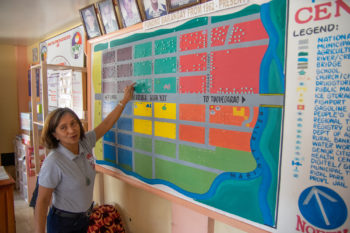
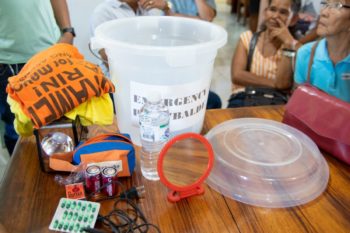
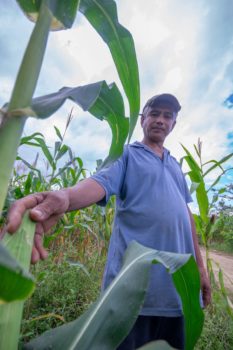
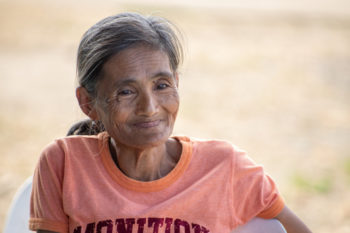
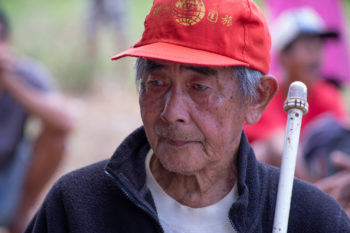
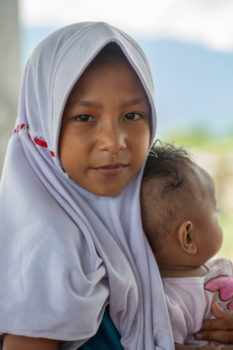
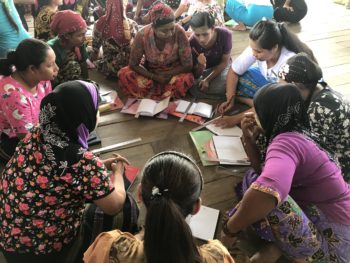
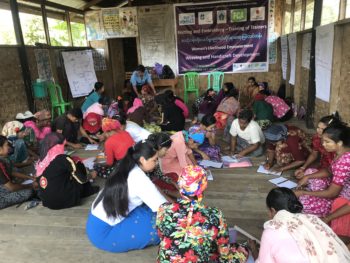
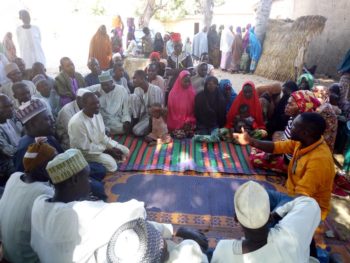
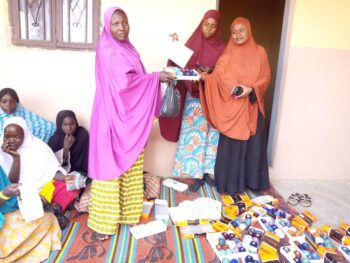
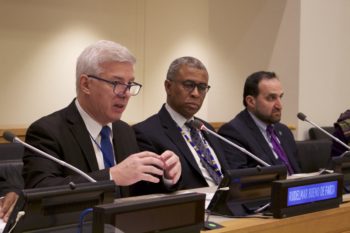
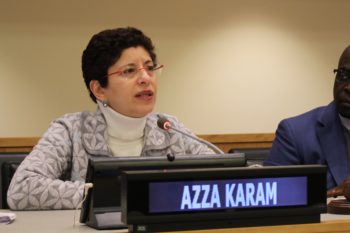
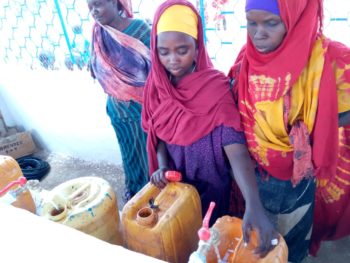 Gabey Mayow Kalmoy, 33 years old, is a resident of Busle village, a small community of 2000 people in the the Gedo region of the Jubaland State in Somalia.
Gabey Mayow Kalmoy, 33 years old, is a resident of Busle village, a small community of 2000 people in the the Gedo region of the Jubaland State in Somalia.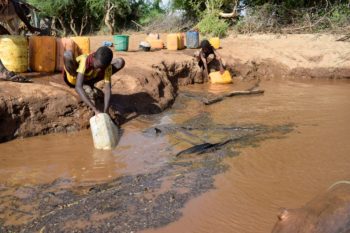 According to her, the life of her family changed immensely after the water kiosk was built in May,2018.
According to her, the life of her family changed immensely after the water kiosk was built in May,2018. 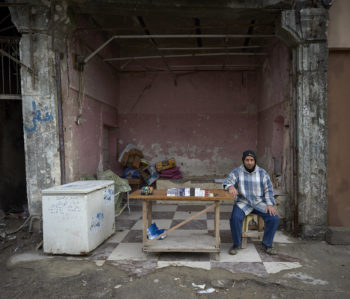
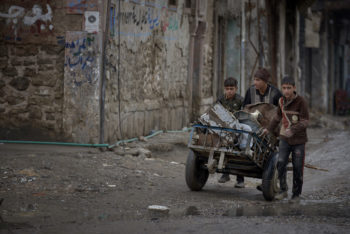
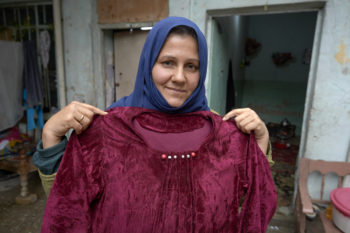
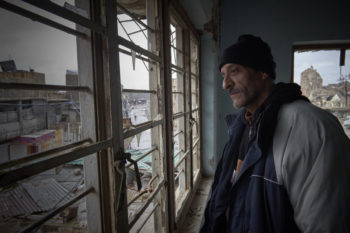
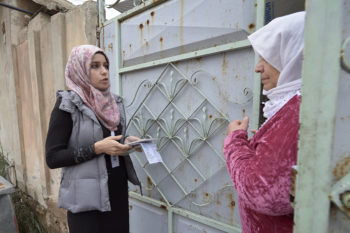
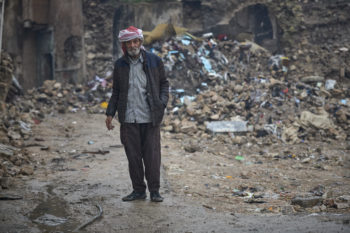
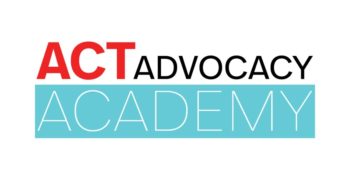 On December 18, 2018, 23 fresh advocacy officers graduated from the
On December 18, 2018, 23 fresh advocacy officers graduated from the